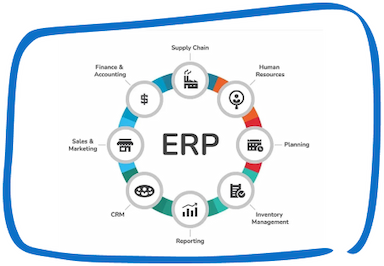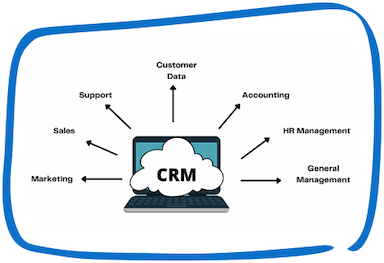Before starting the blog, let’s talk about corporate tax.
According to the UAE Ministry of Finance, a federal corporate tax (CT) was implemented on corporate net earnings.
The net income or profit of corporations and other organizations from their business is taxed directly as corporate tax.
All businesses operating in the UAE must pay UAE corporation tax, with the exception of those engaged in the extraction of natural resources, which will continue to be subject to corporate taxation at the Emirate level.
Corporate Tax will only apply to foreign companies and people who conduct continuing or regular trade or business in the UAE.
All types of profits and other (net) income reflected in the financial statements prepared by generally accepted accounting principles shall be subject to UAE Corporate Tax on an equal basis.
Why is corporate tax necessary?
Foreign investments are attracted to the UAE by corporate taxation, which is regarded as a competitive advantage.
Paying corporate taxes may be preferred by business owners to paying additional individual income taxes.
One of the global best practices that will solidify the UAE’s position as a premier business and investment destination is corporate tax.
Reiterating its commitment to tax transparency and combating harmful tax practices, expedites the UAE’s development and transition in order to fulfill its strategic goals.
Corporate tax rates across the GCC
10% in Qatar, 15% in Kuwait and Oman, and 20% in Saudi Arabia are the different corporate tax rates.
The UAE declared that starting on June 1, 2023, it will impose a 9% corporate tax on business profits. Bahrain is also planning to implement it in 2023.
Kuwait, Saudi Arabia, and Qatar tax the profits of the local entity attributable to non-GCC shareholders.
For instance, only money produced by non-Saudi owners is subject to corporation tax in Saudi Arabia.
Applicability of Corporate Tax in UAE
The following will be subject to UAE corporate tax, according to a statement from the UAE Ministry of Finance:
- All companies and people operating legally in the UAE have a commercial license.
- UAE free zones for business.
- Only foreign companies and people who do ongoing or regular business in the UAE are eligible.
- Banking activities.
- Businesses involved in real estate management, development, construction, agency, and brokerage.
Due date of corporate tax in UAE
The UAE Ministry of Finance stated in January 2022 that it would impose a federal corporate tax on companies’ net income. The corporate will go into effect on July 1, 2023.
The effective applicability date, however, may vary based on the business’s chosen financial year.
Federal Tax Authority (FTA) will be responsible for corporate tax administration, collection, and enforcement.
Date of implementation of corporate taxation for businesses
In the UAE, the corporate tax will go into force for fiscal years beginning on or after 1 June 2023.
The authorities have introduced the notion of the effective date of corporate tax applicability due to the fact that firms use various financial year start dates.
Beginning on July 1, 2023, a company’s financial year from July 1 to June 30, 2024, will be subject to UAE Corporate Tax (the beginning of the first financial year that starts on or after 1 June 2023).
Beginning on January 1, 2024, a company with a (calendar year) financial year that runs from January 1, 2023, to December 31, 2023, charged UAE corporate tax (which is the beginning of the first financial year that starts on or after 1 June 2023).
Books of Accounts have a significant role in company tax.
Using accounting management software, we are in the era of digital transformation, and GCC countries, including UAE, are no exception.
Managing books of accounts is no longer an option in light of the recent adoption of VAT and the projected corporate tax; instead, it is automated using company management software.
A corporation’s financial records and books will become more important as it evolves.
The purpose of this is to determine a company’s corporate tax liability based on its net profit.
Calculating the correct corporation tax amount depends on the accuracy of the business data, which will also define the accuracy of the financial statements.
Additionally, Now is the ideal time for companies to invest in dependable company management software and get ready for the implementation of corporate taxes.
Role of TallyPrime in Corporate TAX
TallyPrime is a business management tool that can handle your company’s expanding needs.
For a smooth transition into the UAE’s tax period, your company should invest in such powerful integrated software.
What else? It offers comprehensive VAT support for the UAE, including producing tax invoices as well as filing proper VAT returns.
Additionally, it offers many other corporate tax features, such as:
- Create accounting, inventory, and also financial reports for balance sheets, profit and loss accounts, and other financial statements.
- Configuring the tax information with VAT Rate Set-up is simple and quick.
- Maintain great accuracy and consistency while managing your books of accounts with simplicity.
- Create VAT-compliant invoices while managing various VAT supplies, including imports and exports.
- Simple steps for completing VAT returns.
- Manage your daily financial activities with ease.
Speak with Our Team!
4.9 Stars
1k+ reviews on






